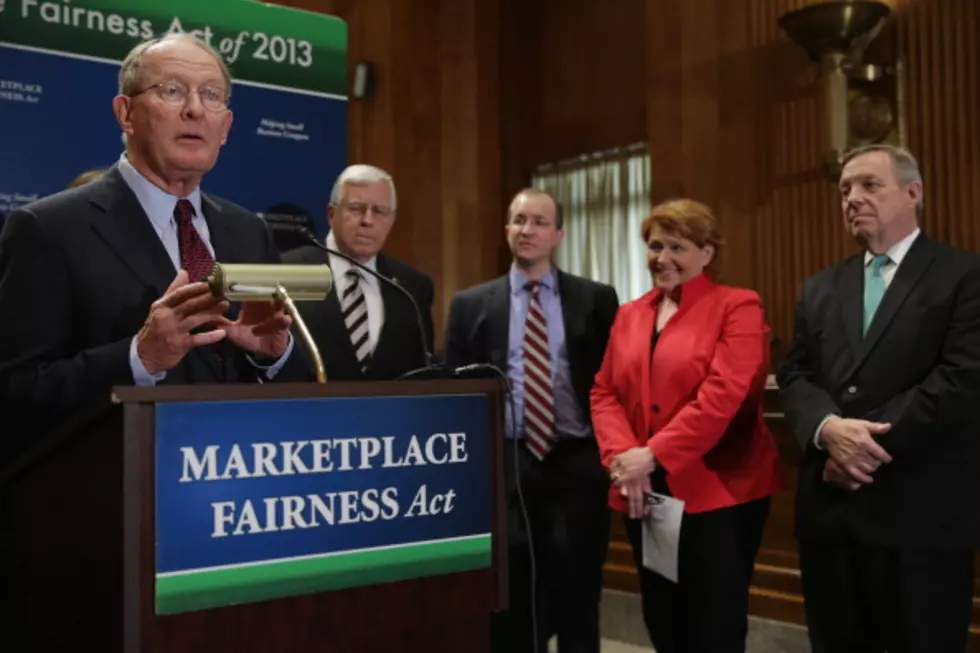
Do We Really Need An Internet Tax?
April 15th isn’t even cold yet and Congress is attempting to resurrect a tax idea that’s been in their crosshairs since the Clinton Administration. Way back in 1999, then Virginia Governor James S. Gilmore, III, chaired The Advisory Commission on Electronic Commerce during the Clinton Administration. After a year of study Gilmore and his fellow committee members issued a final report opposing taxation of goods and services sold on the Internet. Internet Tax Nondiscrimination Act
The Internet Tax Nondiscrimination Act
Fast forward to 2004. President George Bush signs a US federal law that bans Internet Taxes in the fifty US states — . New and discriminatory taxes on the Internet were extended to November of 2007.
The law was extended a third time in 2007 when Bush signed the “Internet Tax Freedom Act Amendment Act of 2007.” The law extended the prohibitions regarding multiple, discriminatory taxes on electronic commerce until November of 2014. If current law says no taxes on the Internet until 2014 — what are we talking about now?
What’s Taxed and What’s Not Taxed
Here’s where it gets really confusing and drives us all crazy when we try to understand how congress writes laws and acts. The wording of the act deals with the Internet itself more than ecommerce.
For example, it does prevent federal, state and local government from taxing things like internet access or any taxes that were on the internet only such as taxing bandwidth, email and bit taxes. It also bars multiple taxes on electronic commerce such as taxing your web site then adding a sales tax on top of that.
Tax Exemptions
Since the act deals more with the Internet than strictly regulating ecommerce, that opens the door for congress to take the action they are currently considering. The act doesn’t exempt sales made on the Internet from taxes. Congress is examining the idea of taxing Internet sales like it currently taxes mail order sales.
It merely says that the net can’t be taxed more than local, or state sales or use taxes dictate. To further complicate this idea, Montana is a non-sales tax state yet its law does allow individual city voters to self-impose a sales tax within their city boundaries.
Pros and Cons of An Internet Tax
In states that have a sales tax, brick and mortar businesses have a legitimate gripe. They have to charge a sales tax yet competitive Internet retailers do not. This makes potential customers more likely to check out the product in the store then buy it online saving the sales tax that the retailer would have to impose.
The online retailer is looking at the possibility of massive amounts of paperwork to keep track of taxes collected from the 9,600 tax districts around the US. Each would have to be collected, reported and paid to each respective district. There would be contradictions all over the place.
If Bozeman decided to implement a city sales tax, the online retailer would have to collect the Bozeman tax but not on sales to Belgrade or Livingston that do not have a city sales tax.
Does The Tax Pencil Out?
Congress in its infinite wisdom has named this new piece of legislation, “ The Marketplace Fairness Act.” Congress is all about fairness no matter who gets hurt. It’s pretty hard to make a case that this act is about income to the states although that’s the case that’s being made. The sequester cuts saddled the state with costs that were covered by federal funds. This income from this act will help states manage those costs. Let’s look at the numbers.
Online Sales
Every Christmas season online sales seem to set new sales records. In the early infancy of the Internet sales were about 1.6% of total retail sales. By 2012, retailers enjoyed a healthy 5.2% of sales amounting to $225.5 billion.
Revenue from purchases made on the Internet in the United States has grown steadily since 2003. That year, they made up about 1.6 percent of total retail sales in the U.S. By 2012 they had risen more than three-fold to 5.2 percent, bringing in $225.5 billion.
Assuming online retailers could realize a nice 3% profit after expenses there would be a taxable income of $6.75 billion. Hardly a national debt busting amount in a trillion dollar plus economy, and it wouldn't be taxed at 100% either. Seems like a paltry sum when you consider that Federal Reserve Chairman Ben Bernanke is pumping $40 billion a month of borrowed money into the system. Seems like the smart thinking would be to ask him to just borrow an additional $7 billion and call it good.
Some Final Thoughts
In the interest of full disclosure I am an online retailer. Since I am doing less than one million in Internet revenue I would be exempt from this bill. However, I am concerned where this tax could go and how low the exemptions might eventually settle.
Here’s the bur under my saddle when it comes to an Internet tax.
My biggest concern is the proven track record of government totally mismanaging my money. Almost every day there is a news story of government either losing or paying out monies that should not be paid out. Remember that $6.75 billion above? The IRS just overpaid twice that amount, $13.6 billion, to Earned Income Tax Credit filers.
I would be more comfortable supporting this measure if I was convinced that the monies collected would be used beneficially. Unfortunately, the evidence of that happening is sadly lacking. More than likely congress will pass this bill and we’ll move on to the next critical issue — taxing how much I watch TV.
If you are moved to contact your senators about this issue, you’ll find their numbers here.
More From KMMS-KPRK 1450 AM









